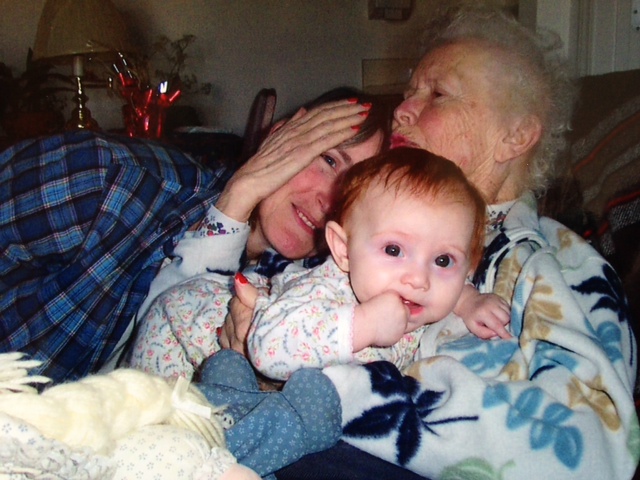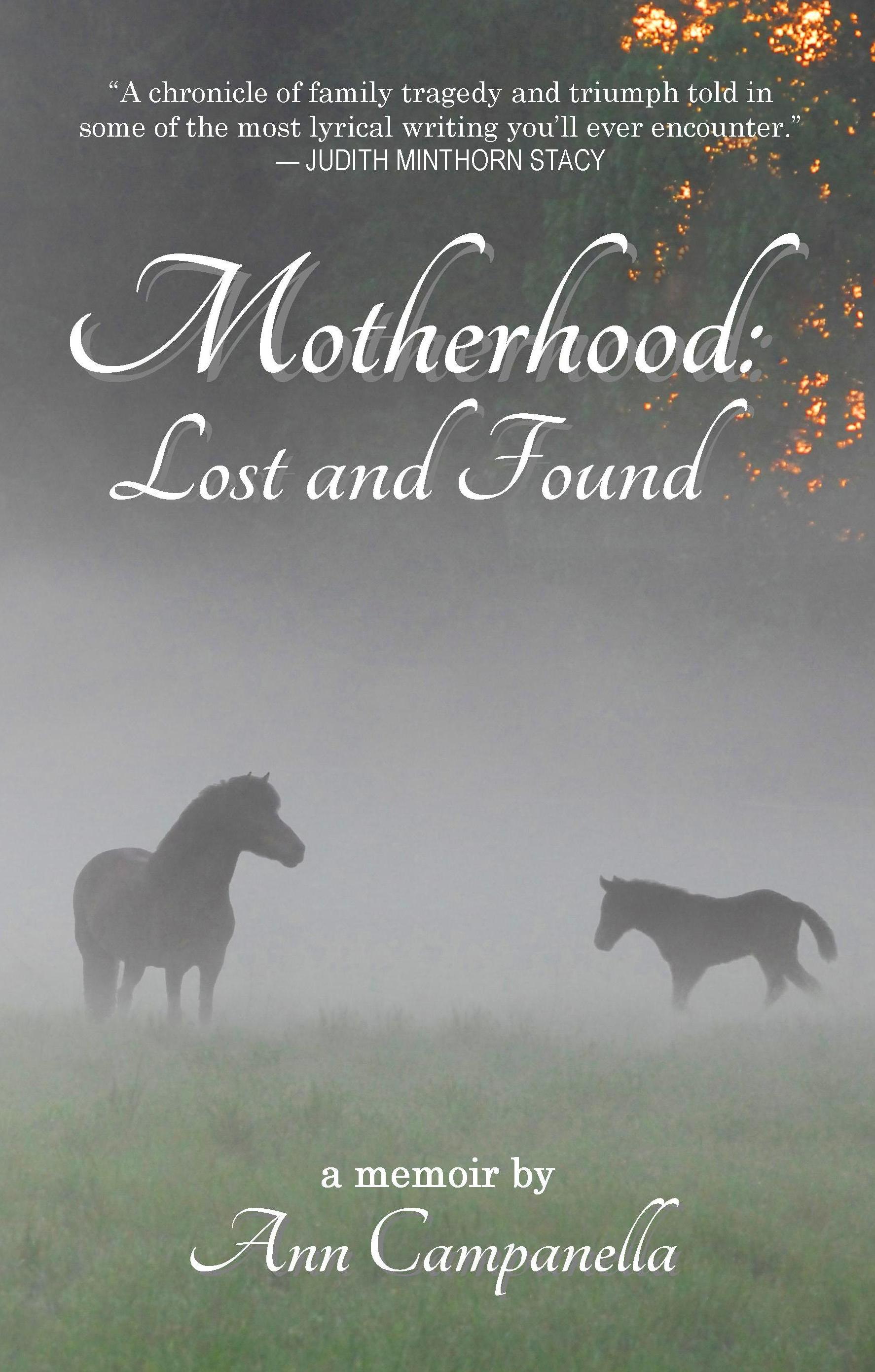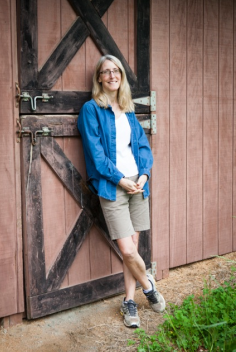An Excerpt From The Memoir Motherhood: Lost and Found
An Excerpt From
Motherhood: Lost and Found
By Ann Campanella
Motherhood: Lost and Found tells the story of my mother’s descent into Alzheimer’s at the same time I was longing to become a mother myself. In this excerpt from the memoir, my mother’s behavior has become erratic and unpredictable, but she has not yet been diagnosed with Alzheimer’s. My brother has brought her to Charlotte, NC, where he and I live, so that we can take her to Duke University Medical Center to be evaluated. When Mom says she wants to go up the hill “to check on Odd,” she is referring to her younger brother who lives miles away at Lake George, NY.
Ann will be interviewed on Alzheimer’ s Speaks Radio August 5th. Join us for the conversation.
 Ann with her Mother and Daughter
Ann with her Mother and Daughter
(From Motherhood: Lost and Found, p. 112-115)
Will and I drive my mother back and forth from his house to mine for a few days, until the end of the week, when I decide it’s easier to just keep her at my place. The changing of locations confuses her. Besides, I want to be here in case the doctor calls from Duke. Will and I have decided that as soon as we hear something, we’ll put her in the car and head to the hospital.
The sky is dark and overcast and the weatherman is predicting storms. Except for the few minutes when I run down to the barn to feed the horses, I feel utterly trapped. The worst thing is missing my writing groups. I help Mom bathe and brush her teeth. I help her put on her underwear and Depends. I direct her to the bathroom over and over. She refuses to wear diapers even though she has accidents several times a day. I’m drowning in wet clothes.
Is this what having a baby would be like? I’m caught between the grind of caring for her and the hope of one day having a child. How could I possibly do both? Will I have to give up one or the other? Questions surge through my body, making my stomach clench.
Mom is constantly agitated. I go upstairs to my room to read for half an hour. The entire time I hear my mother below me opening doors and closets, looking in drawers, opening the dishwasher, going in and out of the bathroom. I can’t concentrate enough to take in what I’m reading; her constant motion makes me nervous. Where is she going? What is she doing with my stuff? When I ask her what she’s looking for, she stares at me with a question in her eyes. “Uh, I’m not sure.” Then she goes back to opening drawers, closing them, opening doors, closing them. It’s as if her body still wants to do the things she’s always done – walk around the living room and the kitchen straightening up after my father, picking up his dishes from the table, throwing away old newspapers, folding laundry, putting things away. She can’t turn it off.
When I come downstairs I find Mom wearing my favorite grey sweatpants, a pair she gave me. Unlike garden variety sweats, these are tailored, with darts in the front. I wear them around the house, and they are nice enough to run errands in. They are my second skin in the winter. They must have been hanging in the laundry room. I can understand her confusion because she used to have an identical pair, just one size larger, but hers were lost over a year ago.
“Ann, I can’t believe I found these,” she says, smiling. Now that she has lost weight she fits easily into my clothes, although the waist band bulges a bit.
“Um, Mom, those are my pants,” I say, ashamed at how much I want to get her out of them. What if she has another accident?
Her smile begins to fade. “You mean they’re not mine?” She looks down at her legs.
“Remember, we both have a pair like that?”
She frowns. “But they look just like my pants. And they fit so well.”
I rummage in her suitcase for another outfit. The skirt she was wearing earlier is balled up and wet. “I think I need to do a load of laundry,” I say. “How ‘bout I wash those?”
“These? The ones I’m wearing?” She touches her fingers to her thighs. “They’re clean.”
I can’t believe her confusion ends when it comes to laundry. It would be so much easier if she was confused about everything. I pull out a pair of green pants from her suitcase. “They might look clean, but I think they have a spot on the back. Besides, these will match your top better.” I have resorted to lying. At this moment, there’s nothing more I want in this world than to get my pants back.
Mom hasn’t noticed that the front door is locked. But as soon as this thought crosses my mind, she walks down the hall and fiddles with the knob. “What’s this?” she says in an irritated voice. “Am I a prisoner?” Has she become telepathic?
“No, of course not, Mom,” I say soothingly. “I always keep the door locked when I’m home, just because I’m way out here in the woods. Of course you can go outside. Look, the key’s right here.” I unlock the door.
She is through it in an instant, saying, “I’m going up the hill to check on Odd.” Dark clouds gather above the trees and thunder rumbles in the distance.
“Mom,” I yell, “it’s starting to rain!” She ignores me and keeps walking down the driveway. For a moment, I wonder if she would be safe wandering on her own for a little while. It would give me a break and might take the edge off of her agitation. We have eleven acres. Surely she’d keep to the path and turn around when she realized it was raining. Even if she made it down to the road, there’s very little traffic. We have kind neighbors. Wouldn’t they bring her back or call me if she got into trouble? Maybe then she’d be ready for a nap. Part of me wishes desperately that someone would find her, just so I could share this madness. Joel’s been in New York for the week, and I haven’t been able to see my friends or talk in any detail with them on the phone since my mother arrived. Every minute of the day I’ve had to be with her, to keep my eye on her. I’ve never felt so alone.
My mother’s foot slips on the gravel and she teeters, but stays upright. I imagine her falling, breaking a hip.
“Mom!” I run after her and hook my arm in hers.
“Oh, hi, dear,” she says.
I turn my face up to the sky and squint as if I have just noticed the rain. It’s coming down in large drops and my hair is already soaked. I know I should be worried about her getting wet and sick, but at this moment it seems nothing will slow her down. Pneumonia might be a relief.
“Maybe we should turn around,” I say.
“Oh, but I want to go see my brother.”
I smile at my mother as lightning flashes over her head. “I’ll go with you after the rain stops. I promise.”
For more information on Ann, Click Here
To Order The Book Click Below
 Join Author Ann Campanella and Lori La Bey
Join Author Ann Campanella and Lori La Bey
on Alzheimer’s Speaks Radio
 Click Above To Go To The Live August 5th, 2014 –
Click Above To Go To The Live August 5th, 2014 –
12pm EST, 11am CST, 10am MST, 9am PST and 5pm London time
or listen to the show later at your convenience.
For Additional Resources on
Dementia & Caregiving
Click Below




I think many of us can identify with Ann! This is a really great piece of writing!
I so agree. thanks for writing Jane
Lori
“ Inspiring re-inspiration”
I am constantly dismayed to read stories of loving devoted carers attending to the frequently bizarre behavior of their loved ones.
The human brain consists of about one billion neurons. Each neuron forms about 1,000 connections to other neurons, amounting to more than a trillion connections, so that each one helps with many memories at a time, exponentially increasing the brain’s memory storage capacity. For comparison, if your brain worked like a video recorder in a television, there would be enough to hold three million hours of TV shows. You would have to leave the TV running continuously for more than 300 years to use up all that storage. Excerpt from Paul Reber, Professor of Psychology at Northwestern University, Scientific American May/June 2010.
What I have described in my book about inspiring re-inspiration, relates to carers who have acquired the expertise to elicit the awe inspiring moments of sheer joy which their cared for person has stored in their memory. (There are trillions of moments going back to infancy).
The carer and all relatives and visitors have a mountain of well-being cues at their disposal, any of which can be installed into everyday life activities at anytime.
The art and skill needed is a fun process because in compiling what I describe as the “symphony” of their loved ones joys and awe inspiring moments, they too share them!
Every household should have an exhaustive list of inspirational experiences pinned on the fridge door!
HI Trevor,
Thanks for writing. We still have to have you on the radio show. Let me know when is good for you. I hope you are fully recovered now and feeling better.
Lori